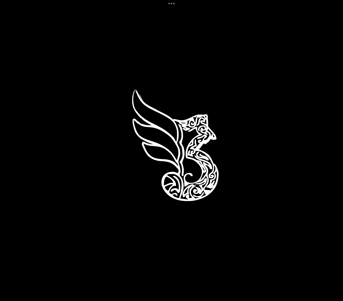From Silence to Tragedy: The Untold Story of Emotional Abuse at KIIT
Prakriti Lamsal’s tragic death at KIIT University exposes the deadly reality of emotional abuse in student life. Why do institutions ignore warning signs? Read now.
2/18/20253 min read
Prakriti Lamsal’s death was not just a tragedy—it was preventable. A slow, brutal descent into isolation, manipulation, and psychological torment. A death that should never have happened. A death that exposes a system that only wakes up after another life is lost.But this isn’t just about one person, one case, or one headline.
This is a mirror held up to all of us.
How many more before we actually fix the problem?
Why Emotional Abuse is More Dangerous Than We Realize
It doesn’t leave bruises.
It doesn’t leave scars.
So, no one takes it seriously.
When people talk about “abuse,” they think of physical violence. But real abuse often starts long before the first slap—it begins with words, with control, with a slow erosion of self-worth.
It starts with isolation. The abuser cuts the victim off from support systems, making them feel alone. It grows with manipulation. Threats, coercion, blackmail—tactics that don’t show up in medical reports. It escalates when no one intervenes. Victims speak up, but their words are dismissed. “You’re overreacting.” “It’s just a bad breakup.”
And then, when the worst happens, everyone wonders how it got this far.
The truth?
It gets this far because we don’t stop it when it’s still “small.”
The Institutional Failure: When Silence Becomes a Death Sentence
Let’s be clear—this isn’t just about one university. This is about every institution that fails to act when warning signs appear.Prakriti reported harassment. She spoke up. She did everything society tells victims to do. The university knew.Reports suggest that KIIT University’s International Relations Office was informed. And yet, nothing was done. Until it was too late.
Why? Because taking action is inconvenient. Because handling these cases properly means confronting ugly truths. Because until there’s a dead body, there’s no urgency.
Every university, workplace, and institution must be held accountable.
Zero-tolerance policies mean nothing if complaints are ignored.
No more “internal investigations” that lead nowhere. If an institution fails to protect its people, it should face consequences.Because what’s the point of rules if they only apply after someone dies?
Why People Don’t Leave Toxic Relationships—And Why That’s the Wrong Question
“Why didn’t she just walk away?”
Because that’s not how psychological abuse works. Because by the time someone realizes they are trapped, they’ve already been broken down.
They think they deserve it. Abusers convince victims that they are the problem. “You make me act this way.”
They’re emotionally addicted. The cycle of love-bombing, cruelty, apologies, repeat keeps them hooked.
They fear being alone. Abusers isolate victims from friends, family, and anyone who could help.
They know no one will believe them. And too often, they’re right.
The psychological cage is what makes emotional abuse so deadly. It keeps victims in a loop of hope and suffering—until they see no way out.
Why We Ignore Emotional Abuse Until It’s Too Late
Even now, as people demand justice, the conversation is shifting away from the real problem.
Some say this is only about men harming women. But abuse is not gendered.Men and women can both be victims, and both can be abusers. Some claim false accusations are the bigger issue. But why does every real case have to compete with the hypothetical? Some focus only on punishing one person. But what about the institutions that let this happen? The systems that failed?
This isn’t about gender—it’s about power and control.
This isn’t about punishment—it’s about prevention.
This isn’t just about one case—it’s about fixing a system that keeps failing.
If we only focus on outrage, we’ll be here again in a few months, mourning another name.
How Do We Fix This? Real Solutions, Not Just Outrage
Enough hashtags. Enough debates. Here’s what actually needs to happen.
Harassment is not just about physical violence. Manipulation, coercion, and psychological destruction must have legal consequences.Mandatory intervention policies, no more “looking into the matter” while victims suffer. Strict consequences for negligence, if an institution ignores a complaint, it should face lawsuits and penalties.
Stop Normalizing Harassment as Relationship Drama, If someone manipulates, blackmails, or harasses, it’s not a private matter, it’s a societal problem. Friends & families need to step up. Victims stay silent because they feel no one will believe them. Be the person who listens.
How Many More?
We can write articles. We can post hashtags. We can protest.
But unless the system changes, nothing will change.
How many more warnings ignored?
How many more pleas dismissed?
How many more lives lost before we wake up?
If we want a future where people are actually safe, the time to act was yesterday.
And if we do nothing now?
Then we are just waiting for the next Prakriti.
.
.
.
.
.
.
Thank you !

